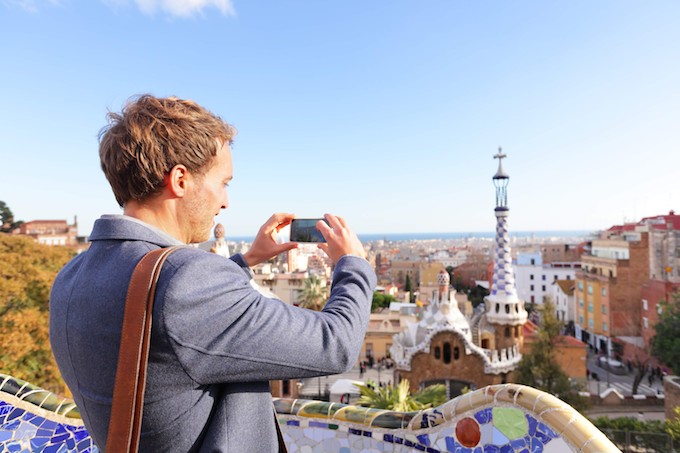Survey shows why holidaymakers travel solo
With the trend for solo travel on the increase, online travel agent Opodo, has polled 10,000 customers across the UK, Europe and the USA to explore the reasons why consumers might choose to travel on their own.
Data from the Solo Travel Research conducted by an independent research company revealed that nine per cent make an active decision to journey alone. The trend is similar across Europe, but Americans more than twice as likely to prefer to travel without company – a huge 24 per cent actively embracing the notion of single travel.
Of the 9% of UK travellers who prefer to go it alone, almost one third (32%) report that their key reason is the absolute freedom of movement that it allows. 31% would only travel solo if friends and family weren’t available to join them; 26% would travel alone as an experiment and 25% think that it is a super way to meet new people.
When it comes to reasons for solo travel, the key priority is the quest for culture (38%). Germans are the least likely to travel ‘to get to know myself better’ (21%) – closely followed by UK travellers (23%) while US and Spanish travellers are far more interested in travelling for self-exploration. Brits also put ‘’meeting new people’ pretty low on their reasons for solo travel (25%) compared to Americans (51%) and Swedes (33%). Instead, 32% of Brits would travel alone for a beach/relaxing trip, 31% for a volunteering trip and 26% would travel to find adventure/sport.

The data for UK travellers also reveals:
Gender Differences
- 14% of males would travel alone, compared to 6% of women
- Most men (36%) would travel solo to have complete freedom of movement
- Most women (30%) would travel solo because friends and family aren’t available
- Both males (36%) and females (49%) put safety first when considering solo travel essentials (i.e. money belt, first aid kit, emergency contacts)
Age Range
- 25 to 34-year olds are most inclined to travel solo, with 16% saying they would, compared to the next largest age group (35 to 44-year olds), where only 11% are so inclined.
- 29% of UK respondents believe that 25-34 is the ideal age to travel solo – while across all responses 31 emerges as the average best age of all.
Regional Differences
- 58% of Londoners would travel solo for a cultural trip compared to 48% Welsh and 38% West Midlands travellers
- The Welsh consider safety a high priority, with 55% confirming a money belt, first aid kit, emergency contacts etc, as travel essentials
- 23% West Midlands respondents consider 18-24 years the best age for solo travelling, while 39% of Londoners think 25-34 years and 8% of Northern Irish think 45-54 years are the best ages to travel solo

When it comes to the global data (10,000 respondents), the general consensus is broadly similar to UK-only data, with the exception of a handful of significant differences:
- 9% of UK travellers would travel solo, compared to a large percentage (24%) of Americans. French and German travellers have a similar percentage to Brits.
- 70% of UK travellers prefer to travel with someone – the nation most disinclined to travel solo is Portugal, with over 86% preferring to travel with someone else.
- Americans are the most inclined of any nation to travel alone for an adventure or sports trip (53%) while the least sporty or adventurous solo travellers are the Brits (26%).
- Solo German travellers put comfort high on their list of priorities (33%) compared to Portuguese and Swedish (14%). Only 19% of British solo travellers consider comfort important.
- Portuguese and Spanish travellers are most likely to plan well in advance and pack a map or GPS system (36% and 35%). Only 19% of Brits admit to pre-planning being a priority.
- In the oldest age group (55+) the Swedes are most intrepid with 8% of believing this is best age to go it alone, compared to 2% of Americans.




